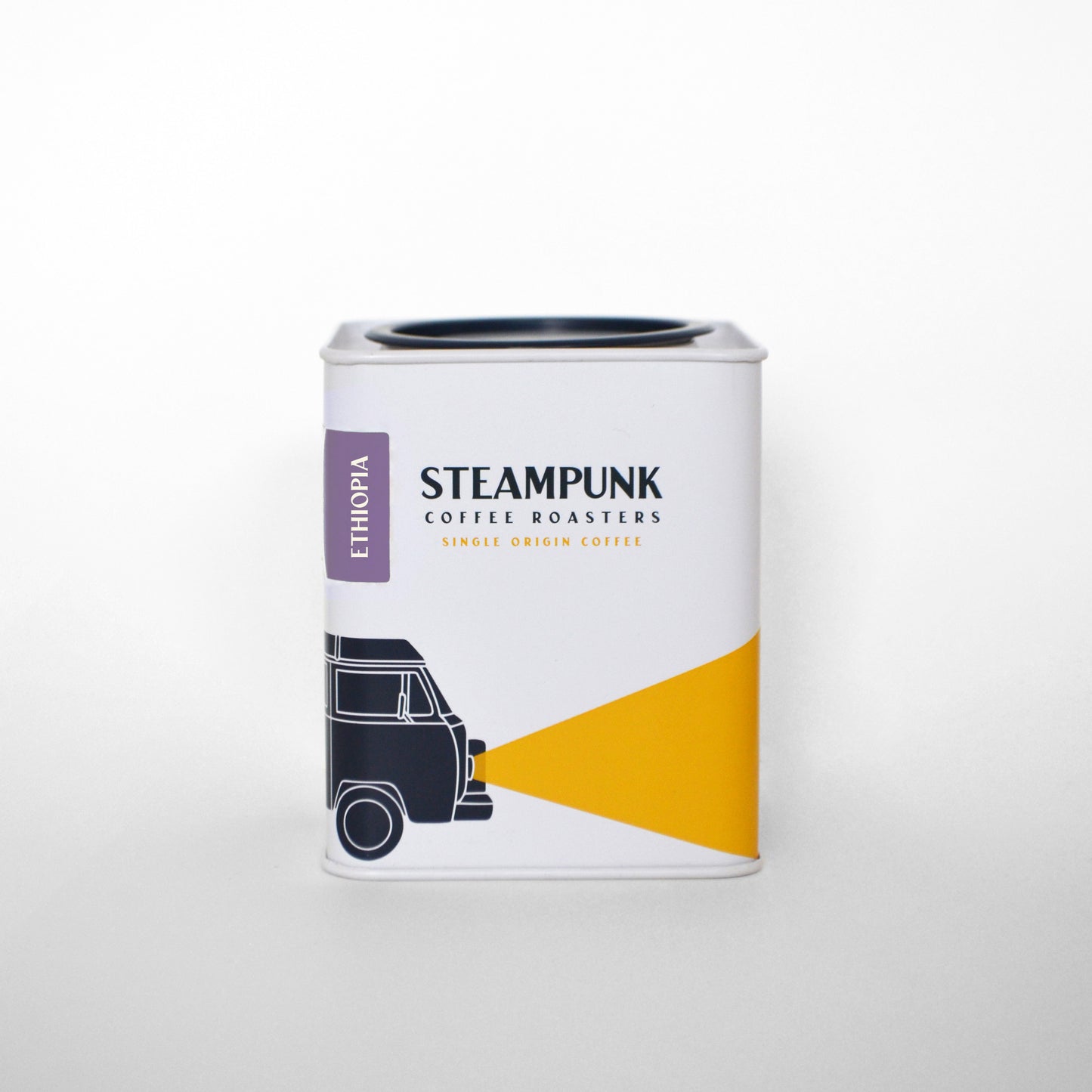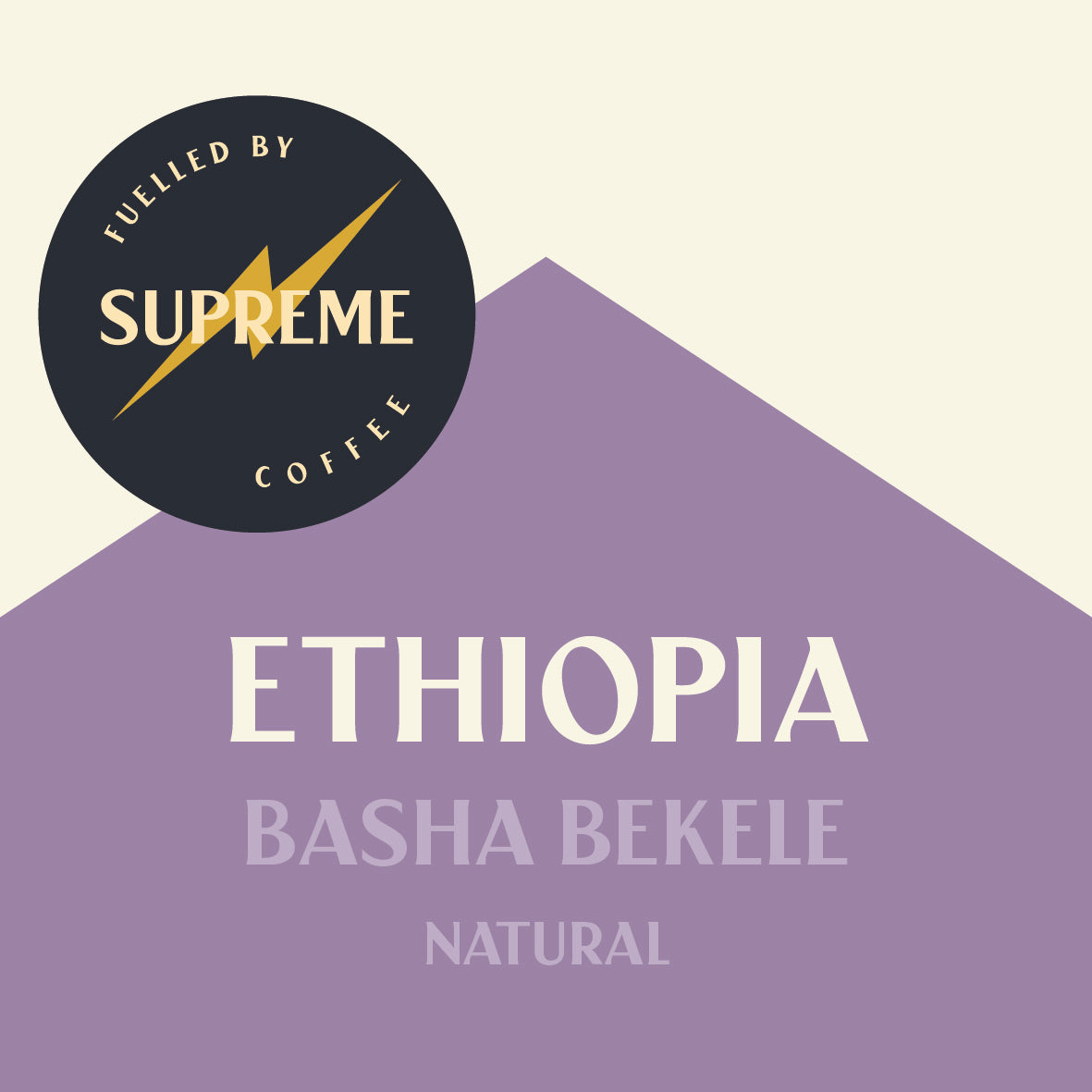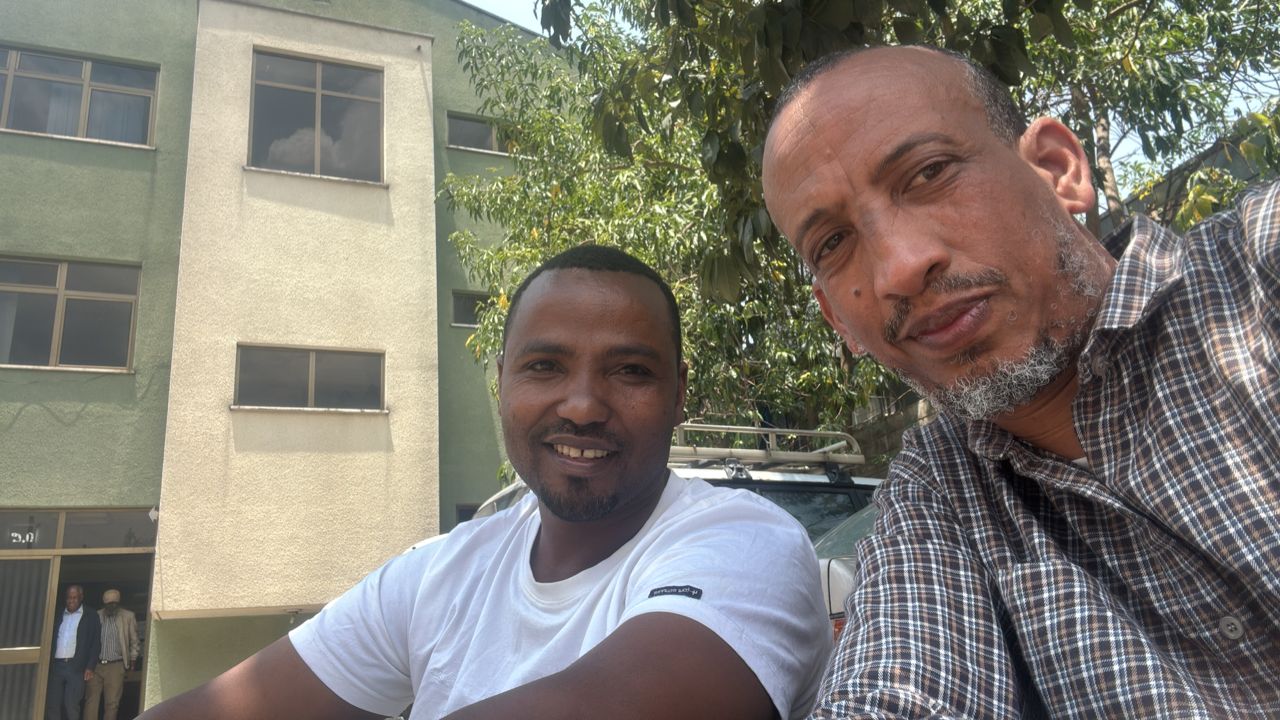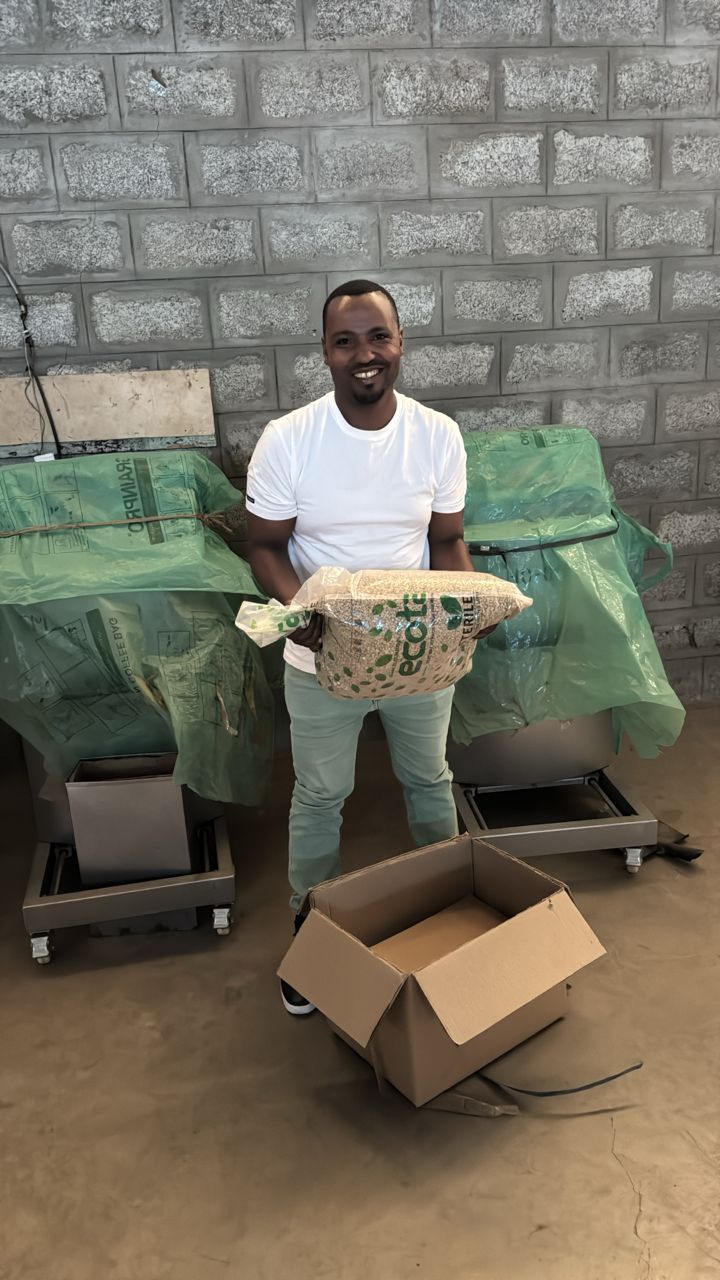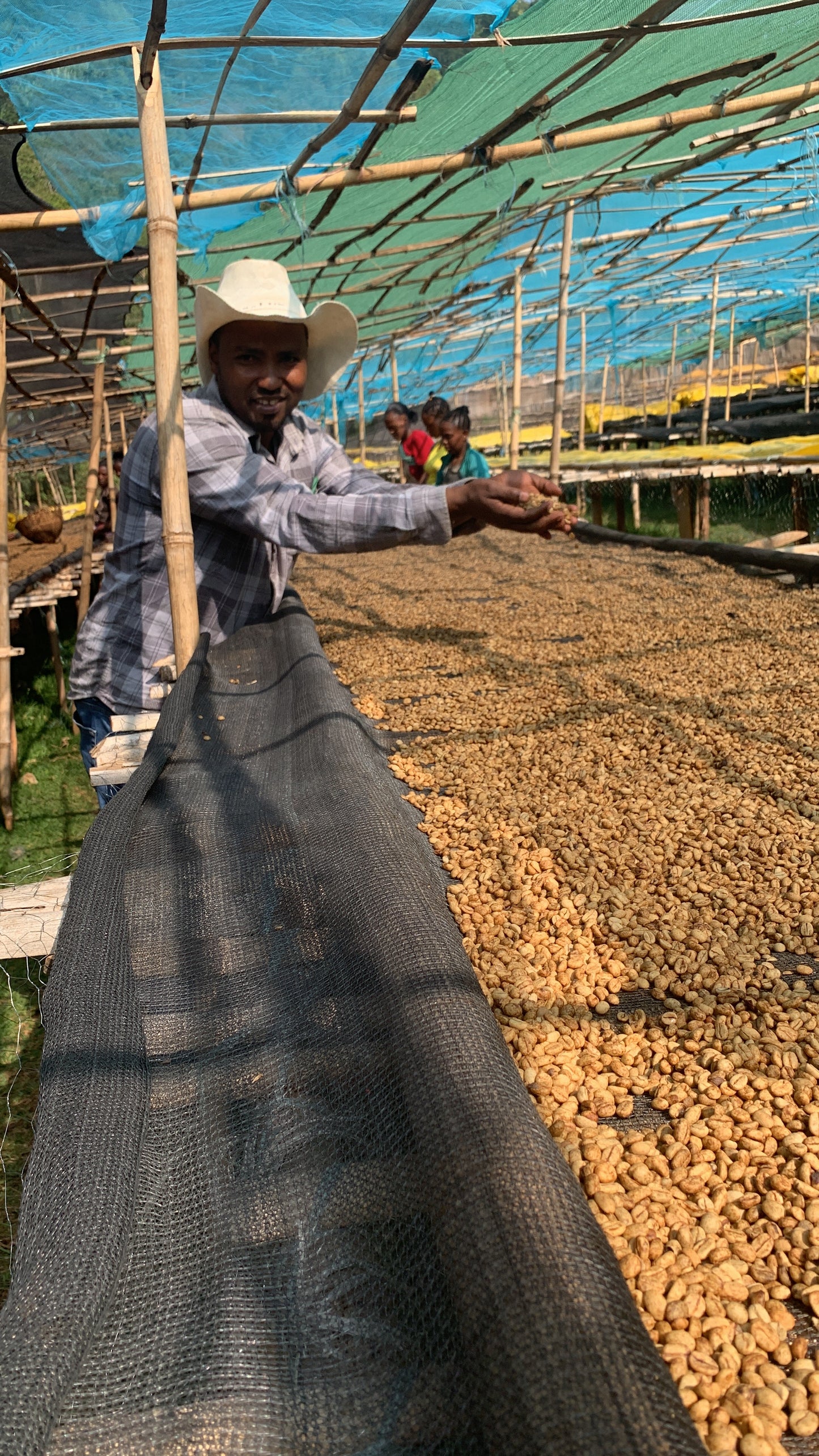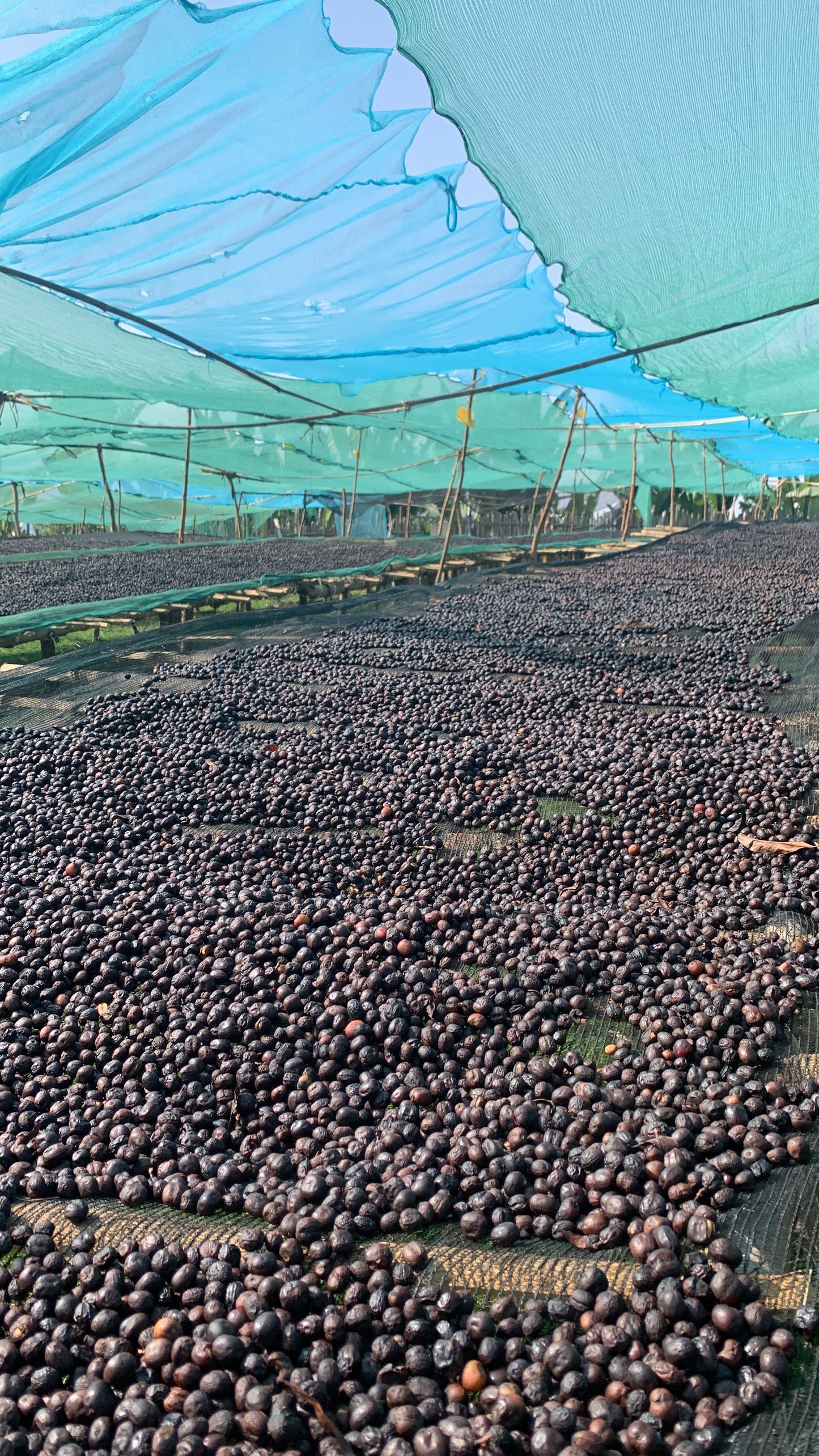Steampunk Coffee Roasters
Supreme Coffee: Ethiopia Basha Bekele
Supreme Coffee: Ethiopia Basha Bekele
Couldn't load pickup availability
Region: Sidama
Altitude: 2400 m.a.s.l.
Variety: JARC 74158
Processing: Natural
UK Arrival: August 2025
Tasting Notes: A mesmerising, multifaceted coffee with rose and jasmine florals, vibrant ripe mango and blueberry fruitiness with a cream soda sweetness. Layers of flavour unfold through the finish.
Our Supreme coffees are exceptional lots that challenge our preconceptions on how coffee can taste. This lot, from Cup of Excellence winning producer Basha Bekele, came with the cupping notes “vibrant”, “lingering”, “deep” and “complex”, and these are not hyperbole. The flavours in this coffee will make you stop what you’re doing when you taste it.
The remarkable taste profile of this lot is matched by an origin story that likewise breaks the mould for how coffee is traded in Ethiopia. It was exported by a fledgling operation founded by an industry veteran whose aim is to offer smallholder farmers a pathway to alternative markets outside of the Ethiopian Commodity Exchange, which often obscures the traceability of coffee grown there.
This coffee was grown in a mountain village called Kebele in the Bensa district of Sidama. Coffee farming in this area is relatively new, with most plots cultivated as garden coffee within smallholder farms. After picking it was processed at Bekele’s newest washing station, Gonjobe, where it was floated then spread out to dry on raised beds. The variety, called JARC 47158, was engineered by the Jimma Agricultural Research Center (hence “JARC”). Known locally as “Walega”, this variety was developed in the 1970s for its resistance to leaf rust, its ability to thrive at high altitudes and its distinctively high quality flavour profile.
Bekele operates three other washing stations, Bombe, Murago and Kokose, in addition to farming his own 12-hectare plot. He’s the son of a coffee farmer, and both he and his father sold their cherry to the regional cooperative before the government made it possible for smallholders to obtain export licences. Since then his operation has grown steadily and today he collects cherry from over 100 other smallholders to process at his washing stations. At the close of the harvest season, he provides second payments to his member farmers, reinforcing trust and delivering fair returns for their hard work.
Last year Bekele won a Cup of Excellence Presidential Award and his coffee fetched the highest price ever recorded for an Ethiopian coffee at the resulting online auction held by the nonprofit that runs the competition, the Alliance for Coffee Excellence.
Bekele has made a name for himself with astoundingly good coffee, but for most Ethiopian farmers, linking their name and reputation to the coffee they grow is impossible. In order to create lots that are of exportable volumes almost all coffee in Ethiopia is blended together and named according to its grade, region and process, for instance, G1 Yirgacheffe Natural or G2 Limu Washed.
Dave Burton, Head of Coffee at Omwani Coffee Co., the importers who brought us this coffee, had a mission to source traceable coffee from Ethiopia. In February, after returning from a sourcing trip, he wrote that Ethiopia is at a crossroads, with a coffee industry “filled with both immense challenges and limitless potential.”
He went on to say, “The challenge is clear: how can we ensure farmers continue producing exceptional coffee while earning a sustainable income? We believe the answer lies in building trust, investing in quality, and forming long-term partnerships.”
This way of trading coffee is systemically discouraged in Ethiopia, where the Ethiopian Coffee Exchange (EXC), has requirements that decouple the buyer and seller, not allowing buyers to cup coffees before they bid on them and only trading contracts of relatively large volumes (compared to the volume of a typical specialty microlot). The result is that lots are blended and traceability information is lost.
The ECX is responsible for a lot of progress and good outcomes for farmers, as Daily Coffee News pointed out in 2020, “Before the ECX was established, many Ethiopian coffee producers had little to no access to sufficient credit, market information, and goods transportation among many other vital resources.” But the setup makes it almost impossible for specialty traders to do what Dave Burton wanted: recognise and pay for the work of individual farmers. In addition, according to Omwani, the exporting process in Ethiopia is “something of a bureaucratic labyrinth”, so importers need someone on the ground who can navigate the system.
Enter Moata Raya, who along with his wife Rosa, founded Mecota Trading in 2023. With 15 years of experience working in coffee, Moata has spent his career focused on improving coffee quality and sustainability. “I have worked as a coffee quality trainer, managed farm and wet mill operations, and collaborated with Technoserve to map local coffee profiles and enhance quality control for washed coffees,” he says.
As an exporter, Mecota are vital in the process of acquiring traceable coffees from Ethiopia, handling the bureaucratic and logistical aspects of shipping, while also passing on information about the farmers they source from.
“We're very grateful to be partnering with Mecota Trading for this shipment, and our goal for the future is to continue buying coffee from these very same farmers year-on-year, and see them continue to grow as coffee producers,” Omwani says. With any luck, we’ll be able to snag their lots before they sell out in future harvests to continue supporting this great partnership and celebrating the farmers whose coffee makes it all possible.
Sources:
Mecota report digital.pdf - Google Drive
Back to the Birthplace: Our Vision for a Future Relationship with Ethiopia’s Coffee Farmers
01 - Basha - Ethiopia 2024 - Cup of Excellence Farm Directory
Ethiopian Coffee Smashes Cup of Excellence’s Auction Record – Ethiopian Monitor
Ethiopian coffee and the ECX – Has Blog
What Is The Ethiopian Commodity Exchange? - Perfect Daily Grind
A note about packaging
Our coffee comes packaged in beautiful and hard wearing tins. It is important to keep those beans away from air and light (see our blog post about coffee storage) and we think tins are the very best way of keeping those guys fresh.
Tins can of course be easily recycled (with other metals) but the very best and most environmentally conscious thing to do with them is to refill them. Find out how to refill or dispose of your Steampunk packaging HERE.
Share
